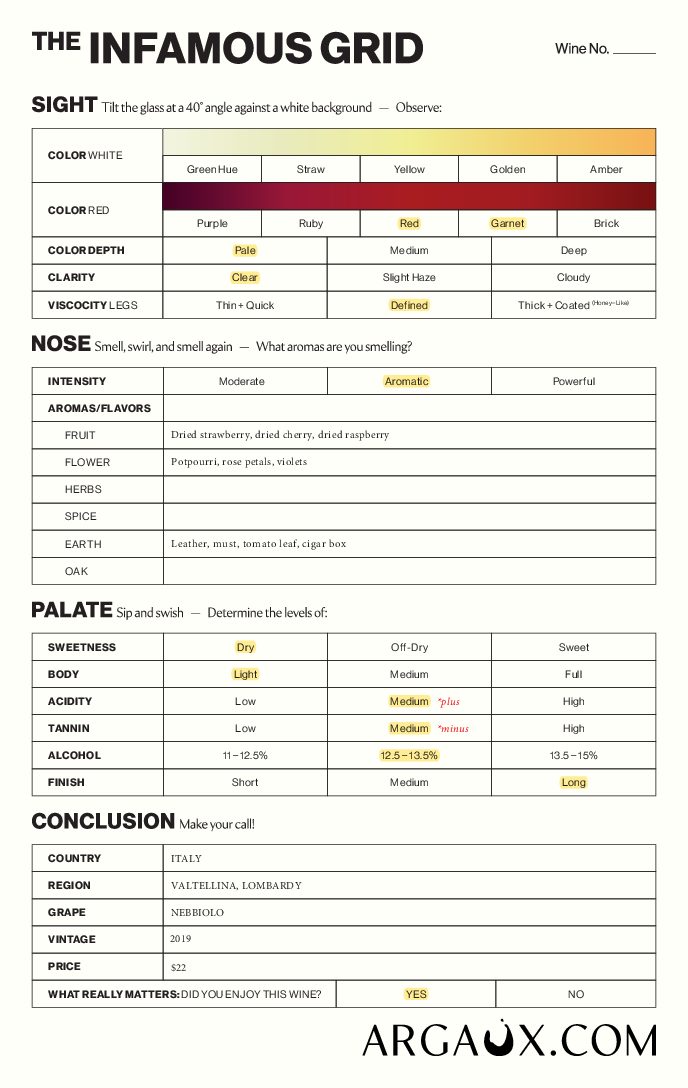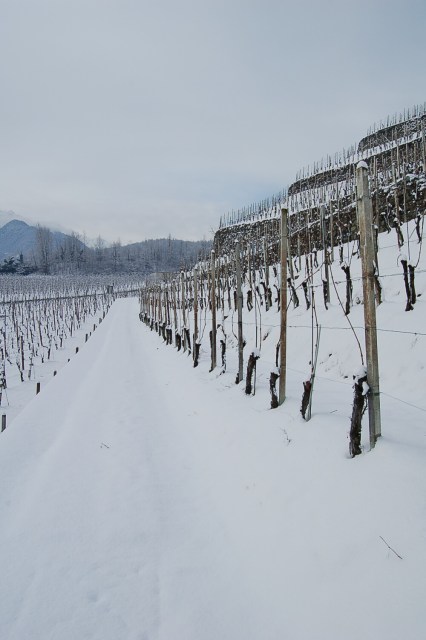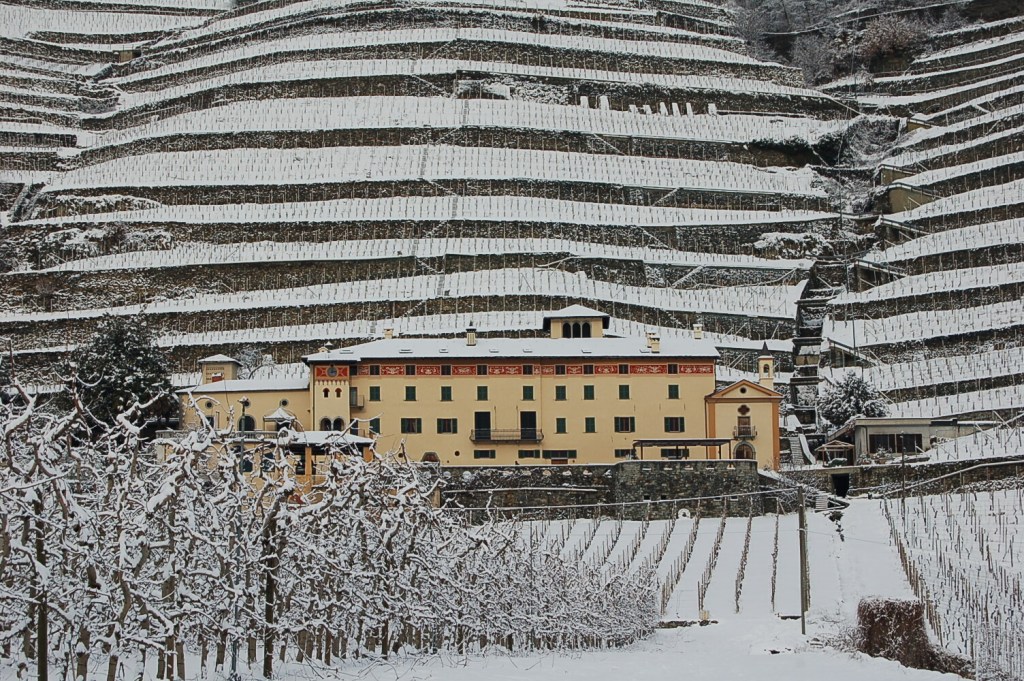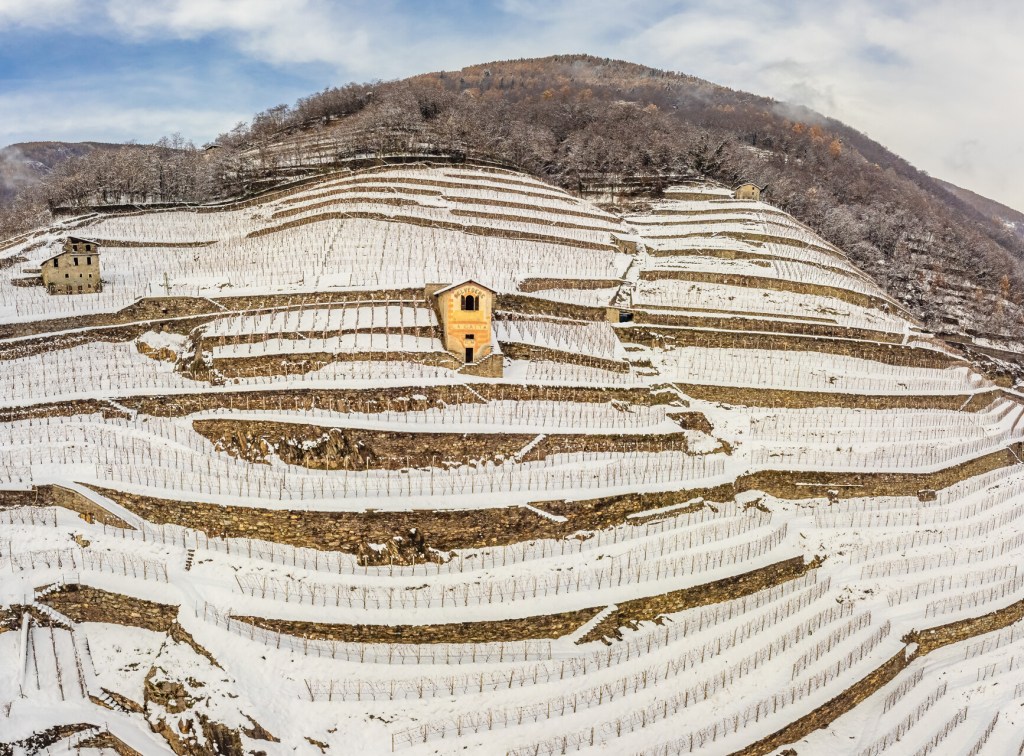2019 Casa Vinicola Triacca ‘Gaux Dopo’ Nebbiolo
This Alpine Nebbiolo is energetic, zippy, and remarkably fresh. The stainless steel fermentation maintains the wine’s bright fruit character, floral quality, and natural suppleness.
Sustainable farming practices and only 100 cases produced!
$22.00
Out of stock
Pairs with
The “La Gatta” estate was originally built in the 1500s as a Dominican monastery and was later purchased as a summer home for the aristocratic de Gatti family, from which the name derives. The Triacca family acquired the old monastery in 1969, which is surrounded by 13 hectares of vigorous vines grown on the steep hillsides of the Italian Alps. In 1987, Domenico Triacca acquired 2,000 square meters of vineyards in Valgella, one of the most highly sought after vineyard areas in Valtellina and built himself a small cellar to start producing and aging wines from his own vineyards. Today, Lucca Triacca runs the estate and is known as one of the most innovative Valtellina producers.
Valtellina lies in an Alpine valley in the northern part of the country in the Lombardy region. It actually forms part of the border between Italy and Switzerland and historically has been Swiss and Austrian territory before becoming part of Italy in 1859. The area benefits from a cool, mountain climate, though ‘La Breva,’ a gentle wind that originates over Lake Como, moves warm air into the valley and helps promote pollination in the spring. The vineyards lie on extremely steep slopes and tiny terraces (similar to the Mosel or Alto Adige) requiring it all to be worked by hand. Some suggest that Nebbiolo may have even originated in Valtellina! Today, it is known for its bright, cherry-scented Nebbiolo, known here as Chiavennasca (after the nearby town of Chiavenna).
“Nebbiolo from Valtellina has always been one of my favorite expressions of this grape. It’s Alpine wine; a much lighter and fresher version of your typical Nebbiolo from Piedmont that you might be more familiar with. They are high acid, food-friendly wines that are often significantly more affordable than your average Barolo. These wines are great with good company, a cheese & charcuterie plate, and some light pasta.” – Lexi Jones, Director of Imports
Related Items
-
2022 Domaine Caroline Bellavoine Bourgogne Rouge
$35.00Caroline Bellavoine is the talk of the town. Her tiny production of old-vine Pinot Noir from the lesser-known Côtes du Couchois is pure, rustic, and deeply expressive of its unique terroir. It’s old-school Burgundy through and through – seriously complex and not for the faint of heart! Decant for 1 hour before enjoying.
Organic farming practices, native yeast fermentation, unfined/unfiltered, aged for 18 months in French oak barrels and only 150 cases produced annually.
-
2018 Domaine Alain Burguet Chambertin ‘Clos de Bèze’ Grand Cru
$600.00If you know, you know. ‘Clos de Bèze’ is the most prestigious and sought-after Grand Crus in Gevrey-Chambertin. For collectors, this wine is a great investment. It will only continue to appreciate in value as it ages over the next 10-20 years.
Practicing organic viticulture, hand-harvested, native yeast fermentation, unfined/unfiltered and only 100 cases produced.
-
2021 Clefs des Murailles ‘Vacqueyras’ Rouge Red Blend
$31.00Let’s face it, we all love CDP (Chateauneuf-du-Pape), but most of us can’t afford to pull those corks on a daily basis. That is where ‘Vacqueyras’ comes in. It’s swimming in the next lane, with eerily similar characteristics, at a lower price. This is one of my party trick wines (looks pricey and tastes pricier).
Sustainable farming practices, woman-winemaker.
-
2002 Emidio Pepe Montepulciano d’Abruzzo
$300.00Extremely limited availability! Emidio Pepe has a cult following for his non-conventional winemaking techniques that have made the estate and their wines legendary. Better yet – we’ve aged the wine for you. Experts say this wine will peak from 2018-2030, aka now!
Organic farming practices, hand-harvested, native yeast fermentation, no fining/filtering, and no added sulfites.










